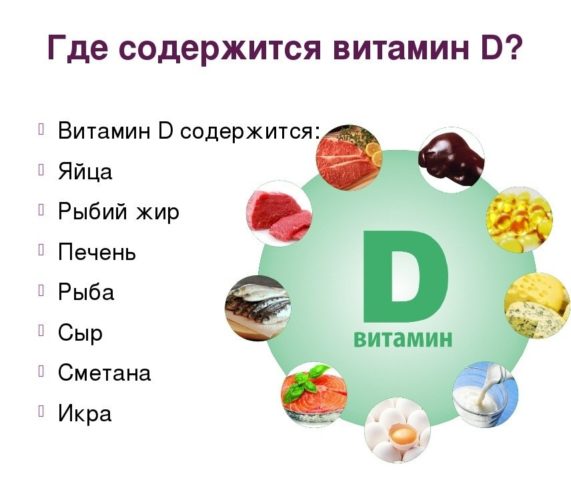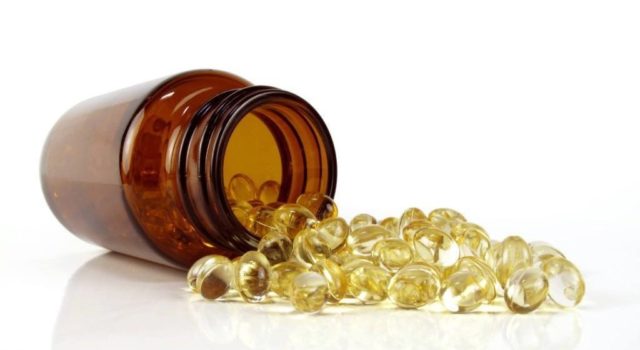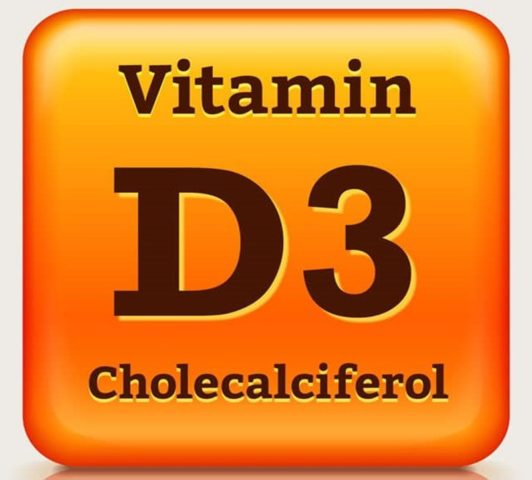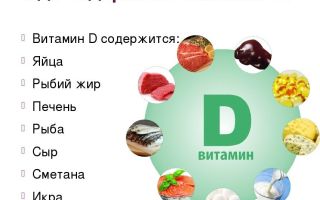Content
- 1 Is it possible for vitamin D with HB
- 2 Is vitamin D transmitted in breast milk
- 3 Useful properties of vitamins D for nursing
- 4 Indications for the use of vitamin D with hepatitis B mother
- 5 Dosage of vitamin D3 with HB
- 6 How to take vitamin D while breastfeeding mom
- 7 Precautions
- 8 Contraindications and side effects
- 9 Conclusion
Vitamin D for HB is necessary for both the mother and her newborn child. It is mandatory for use with HB, as it is important for growth, strengthening bones, and it also prevents the development of many serious diseases.
Is it possible for vitamin D with HB
Vitamin D belongs to complex substances - prohormones, which are considered precursors of hormones. D2 enters the body with food, and D3 is formed under the influence of sunlight.
Vitamin D contains several active substances:
- ergocalciferol (aka D2);
- cholecalciferol (D3);
- calciferol.

Together they provide:
- metabolic processes in tissues and organs;
- absorption of calcium and phosphorus from food in the duodenum;
- participation in cell multiplication;
- synthesis of some hormones;
- fortifying action;
- energy, vitality.
In 1914, the discovery of a certain active substance in fish oil by biochemist Elmer McCollum finally solved the acute problem of childhood rickets. Veterinarian Edward Mellenby has found that those dogs who are supplemented with fish oil do not suffer from rickets. To make sure which substance is such a good prevention of the disease, in 1922 an experiment was carried out with the same fish oil, from which the previously discovered vitamin A was previously removed. All dogs receiving it were cured of rickets. At that time, it was the fourth vitamin discovered by science, and it received the name of the fourth letter of the Latin alphabet. It was later proved that the body can produce it on its own under the influence of the sun.
Breast milk contains a small amount of vitamin D, but it is enough for a baby. If a child with HB does not have enough vitamin, it is solely because the mother does not receive it in full. It is possible to take vitamin D additionally with HS only on the recommendation of a doctor, if there is evidence. To maintain the level in the body, you will need daily sunbathing for 20 minutes a day and an appropriate diet containing the maximum of nutrients. These products include:
- fermented milk products - butter and cheese;
- oatmeal;
- parsley and potatoes;
- liver;
- fatty fish;
- caviar;
- meat;
- eggs (yolk);
- some types of mushrooms.
To speed up absorption, you should include in the diet foods high in phosphorus, calcium and a number of vitamins.
Experts point out that vitamin D can be taken with breastfeeding, but only if necessary.
Is vitamin D transmitted in breast milk

The main source of vitamin D in a newborn is reserves obtained in the mother's womb. Therefore, it is important to make sure that the doses received are sufficient for the mother during pregnancy. The reserves should be sufficient for the first 3-4 months after birth with HS, even if the baby is little in the sun. The addition of vitamin D to the food of a nursing mother significantly increases its amount in breast milk during breastfeeding. If she does not have a deficiency during GW, then there will always be an optimal amount of a useful substance in milk. This has been confirmed by domestic and foreign experts in the course of many years of research on nursing mothers.
It is possible that a number of problems can interfere with the absorption of the vitamin in the mother's body during breastfeeding. For example, being overweight, certain drugs, difficulty absorbing fat from food. However, these conditions do not interfere with the transfer of vitamin D from the blood to breast milk when feeding a baby.
Useful properties of vitamins D for nursing
After childbirth, especially in those women who feed their baby with breast milk, depletion of nutrients and energy occurs. It is during the feeding period that doctors recommend introducing trace elements and active substances into the diet. Taking vitamin D with hepatitis B is important, since it affects all the basic life processes. In addition to strengthening and restorative properties, vitamin D has a number of effects on mothers during breastfeeding:
- immunity support;
- prevention of oncology, sclerosis, diabetes mellitus, some pathological processes in the joints;
- slowing down the aging process, improving the condition of the skin and hair, tissue regeneration;
- positive impact on the work of the pancreas, thyroid gland, visual organs, nervous system;
- strengthening the skeleton, teeth, nails;
- normalization of metabolic processes, metabolism during breastfeeding.

However, the main function of vitamin D in HB is the prevention of rickets in newborns. It can be recognized by the deformation of the baby's bones, excessive sweating, baldness, muscle weakness. It is worth noting that the disease slows down the development of the whole organism as a whole.
Indications for the use of vitamin D with hepatitis B mother
When breastfeeding, the mother's nutrients are spent on milk fortification, so a woman will need an additional intake of vitamin D for the needs of her own body. Taking the drug is indicated:
- when childbirth and the beginning of breastfeeding fell on the winter and early spring;
- with constant stress and emotional stress;
- residence of mother and child in regions with insufficient solar activity;
- lack of breast milk during breastfeeding;
- pathology of the skin, nails and excessive tooth decay in the mother;
- restricting mothers breastfeeding in many foods due to allergies in the baby.
In the absence of such health problems in a woman, it is enough for her to adhere to the correct diet and monitor her health, especially with HS.
Dosage of vitamin D3 with HB
Lack of D3 (cholecalciferol) is observed in those women who live in regions with short summers, where there are few sunny days a year. The need for it increases dramatically during breastfeeding. The correct dose of D3 will help reduce the threat of various diseases during the hepatitis B period.

It is noted that in different periods of a woman's life and physiological state, including during breastfeeding, it is necessary to take different doses of the drug. For example, for young people it is enough to take 400 IU per day. Pregnant women and mothers who are breastfeeding a baby need 500-600 IU per day, because most of the nutrients are transferred to the baby through milk. Drugs D3 and the dosage for HS should be prescribed by a doctor, otherwise the excess can harm.
How to take vitamin D while breastfeeding mom
You should not make a decision to receive funds on your own, especially during GV. In this regard, it is necessary to consult with a specialist. Before use, you need to read the instructions. In no case should a certain dosage be exceeded for HS. It is important to closely monitor the body during the first days of administration in order to prevent individual intolerance to certain components of the drug. In addition, the active substances should be drunk in a course, observing all the instructions of the manufacturer and the attending physician.
Precautions
If, while taking medications while breastfeeding, there are signs of overdose, allergies, intolerance, you need to temporarily postpone the use of the product and consult your doctor. If necessary, a blood test can be done to confirm excess vitamin D.
Contraindications and side effects
The drugs are not recommended for those who use steroids, epilepsy medications, and some weight loss drugs. In addition, there are diseases in which you need to take funds under the supervision of a doctor:
- pathology of the liver, kidneys;
- pancreatitis;
- oncology;
- tuberculosis.
Side effects include individual intolerance.
Conclusion
Vitamin D with HB is the prevention of many diseases for a newborn child and a nursing mother. It is transmitted with breast milk to the baby and prevents the development of rickets and other pathologies. It allows a young mother to quickly recover from childbirth and strengthen the immune system during breastfeeding. Taking medications containing vitamin D must be taken seriously in order to prevent an overdose and not harm the body.

